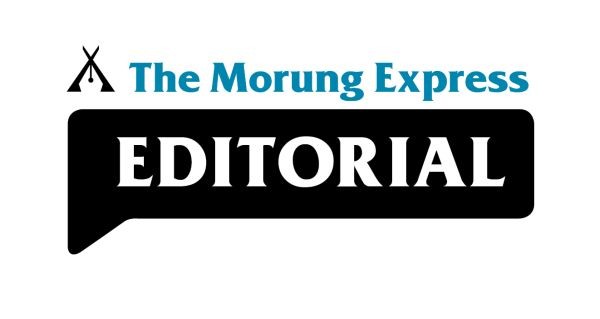
Moa Jamir
Nagaland Chief Information Commissioner (CIC), I Meyionen Jamir, on October 7, divulged that the Right to Information Act (RTI) 2005 has been “misused in the State by a few, who used it for personal gain, and has become a lucrative business.” He further maintained that RTI “blackmailers threaten the departments with exposure and thereby extorting money to the tune of several lakh.”
“The Act should not be misused or abused, or become a tool to obstruct the development of the State or to destroy the peace and tranquillity of the society,” he reportedly added while addressing an event related to the week-long celebration of RTI Week 2022 (October 5-12) in Kohima, held under the theme, ‘RTI- A Tool For Transparent And Accountable Governance.’
While the ‘misuse’ of RTI has long been an ‘open secret’ in Nagaland and India, the public disclosure from the State top’s RTI official is indicative of the gravity of the situation and such ‘misuse’ must be prevented for the sake of accountability and governance.
If such tactics are being resorted to, the very objective of the RTI Act which came into force with effect from October 12, 2005, with the objective to “empower the citizens, promote transparency and accountability in the working of the Government, contain corruption, and make our democracy work for the people in real sense” stands defeated, denoting a sad state of affairs in Nagaland. However, making ‘citizens informed’ is a two-way street and it is pertinent to understand what makes the citizens seek such information in the first place, to explain an aspect of the ‘misuse.’
One of the tools provided under the RTI Act is the ‘suo moto disclosure’ (Section 4) or voluntary publication of the information at regular intervals and making those available in the public domain by concerned public authority. If such voluntary disclosures are in place, the need for ‘on-demand’ RTI by the public could be significantly reduced. The CIC, at the aforesaid event, called upon the various public authorities to voluntarily disclose all information held by them, related to welfare schemes to educate the general public.
Regrettably, regular updates or RTI disclosures from departments and public authorities in Nagaland are at best, dated. Even the likes of the State’s Department of Information & Public Relations had the ‘latest’ RTI disclosure dating back to 2016. Further, while most departments and public authorities do not bother putting the updated RTI disclosures on their websites, even those submitted to Nagaland Information Commission (NIC) are ‘dated.’
For instance, disclosures under Sec 4 of the RTI Act 2005 by various departments and governmental authorities available on the NIC’s websites revealed that the most updated submissions pertained to statuses on October 2020.
In addition, not just RTI disclosures but also publication of all relevant activities and important policy decisions in the public domain and making it easily accessible manner will greatly reduce the chances of RTI being misused. Moreover, good governance and transparency have been the stated pledges of the government of the day in Nagaland when it first assumed office, promising that Government Departments and Institutions would have their “websites, internet portals and social media accounts that provide all information related to their respective Departments within 100 days.”
Nearly at the fag-end of the current tenure, while most government websites lack information on ongoing projects and other relevant policy information, most do not bother to even update their Annual Administrative Report (AAR).
A quick perusal of 82 ‘Government Websites’ shared by the official State portal of Nagaland indicated that only three departments Geology and Mining; Economics & Statistics and Tribal Affairs had the latest AAR (2021-22) available on their websites. Ironically, even the NIC as well as the anti-corruption ombudsman Nagaland Lokayukta’s latest Annual Reports were for 2019-20. Such a state of affairs is a ‘goldmine’ for those seeking to use the RTI for personal as well as political gains. Conversely, if the public authorities are transparent in their dealings, there is no question of ‘blackmailing’ or exposure. Accordingly, transparency, accountability and accessibility must be the cornerstone of each public authority to ensure good governance and prevent the misuse of the RTI Act in Nagaland.
For any RTI disclosures, drop a line or two to jamir.moa@gmail.com






